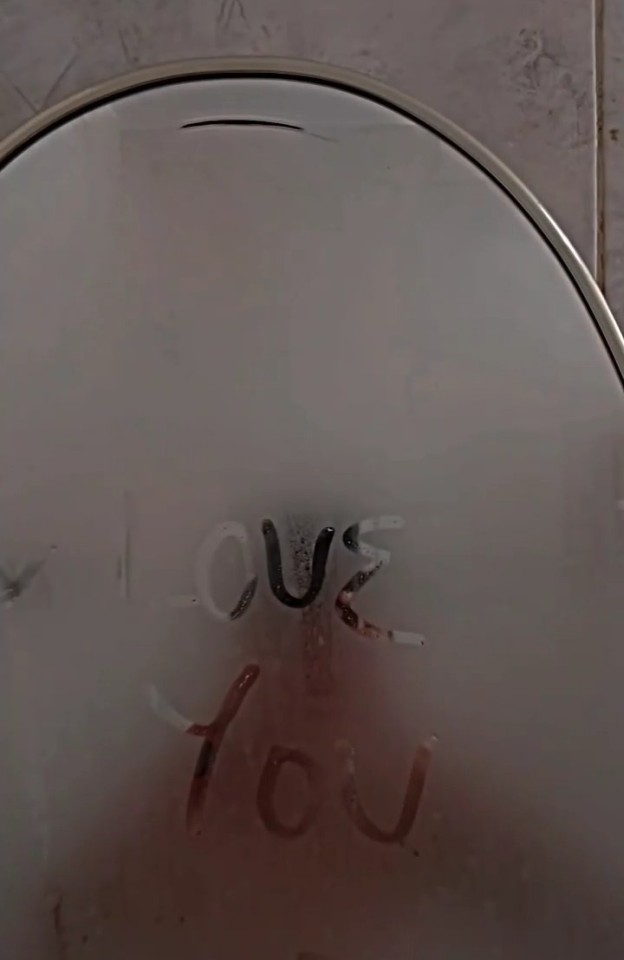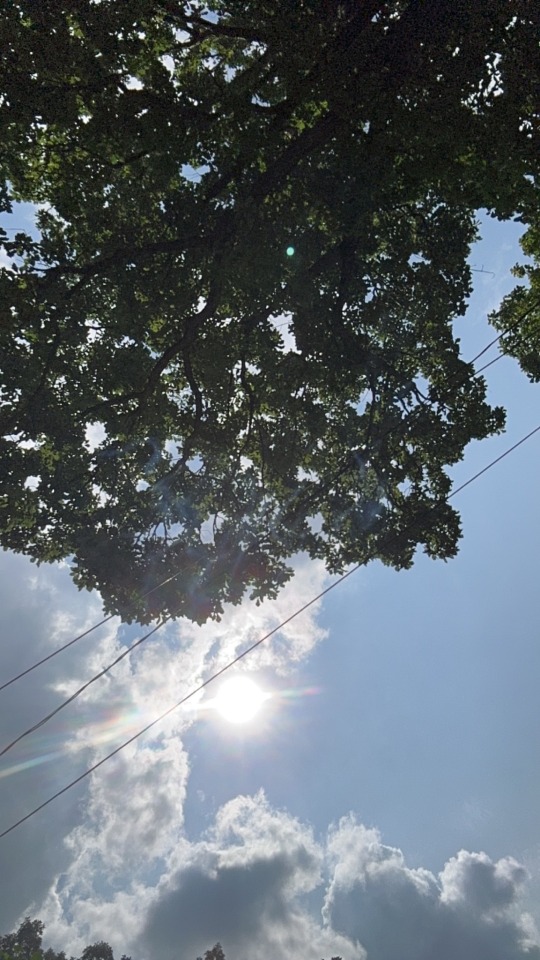#save the tomboy
Text
I support women. I support JKR. So should you.
7 notes
·
View notes
Text
"Three things I wish I knew before I transitioned to male.
One: that injecting myself with cross sex hormones actually was damaging my perfectly healthy body.
Two: that changing my identity and changing my body wasn't actually going to heal the pain that I had within myself. It was just an escape that created actually more trauma for me.
Three: that it was okay to be a tomboy and not fit into society's beauty standards of what a woman was supposed to be like. That I was perfect the way I was, and I didn't need to change myself."
#detrans#detransition#gender ideology#queer theory#medical transition#sex trait modification#wrong sex hormones#cross sex hormones#medical scandal#gender identity#tomboy#save the tomboys#genderwang#religion is a mental illness
507 notes
·
View notes
Text

❤️❤️
#save the tomboys#tomboys#i am a tomboy#gays against groomers#gender non conforming girls ARE NOT trans#gender non conforming boys ARE NOT trans
238 notes
·
View notes
Note
In Tiny Toons Looniversity, Lola Bunny was never intended to be the Acme Looniversity chef at first. According to Ben Siemon, the writer of the episode, “Soufflé Girl Hey”, the show initially planned to have Pepé Le Pew as the chef. This was likely during the development phase and Dave Alverez. They gave him a bio where he now has respect towards women and puts his passion and love towards food instead. He said the idea was turned down because “too much baggage” (probably due to WB’s response of his controversy) and Lola Bunny replaced him. Keep in mind that this was written in 2021 around a time when Space Jam: A New Legacy was huge for the company.
Wow!! Can I please have a link to where you found this info? it'd be really useful!
Thanks for letting me know. Reading this, as much as I love Pepe, I think it's better Lola's the chef than him if he was gonna be reintroduced with a (imo, tired) disclaimer. Makes me sad though that Lola's once again not being written in deliberation, it reinforces her whole issue of not rly bein a Tune... just kinda put in stuff n not really considering her character in these decisions (bc well.... she doesn't originally have one. At least, not an authentic one. Looney Tune-y one....)
#you sittin there yakkin (talk tag)#Looney Tunes#I think now that we have SJ2 Bunny Builders and Looniversity I can confidently say Lola's central thing is 'Tomboy'#but no comedic Thing. or a tic.#Like Petunia's is trying to save face n keeping a sweet attitude as things get worse either by the environment or her hand#or Penelope's gracefulness juxtaposed by her skittish flighty nature--accident prone like her counterpart#Lola's is.. well she's not funny... but now i can more confidently pin down her personality outside of 'basketball' and 'Bugs' mandated GF#I guess Looniversity n SJ 2 (mayyybe the comics yeah) show she's got a temper and like bugs she's reactionary#but like... that's the thing that's bugs' thing gkfdgjd we can't just get a girl version...#Lola Bunny you vex me so
24 notes
·
View notes
Text
decided to add genderbend! Bojere to the game for some flavor >:3
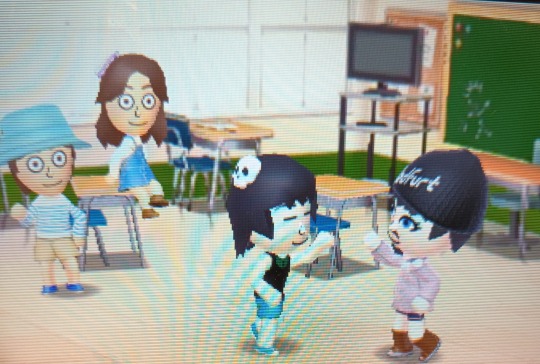
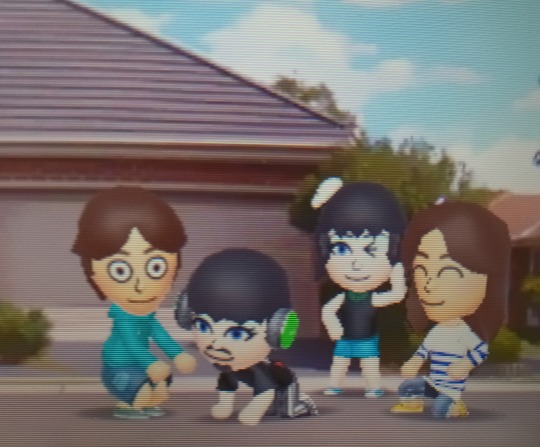
#Bojan is in a constant state of shook#käärijä#bojan cvjetićanin#genderbend#Tomodachi posting#tomboy Kä....save me tomboy Kä..
8 notes
·
View notes
Text
Friendly reminder: It's okay to be a tomboy! Embrace it and live your authentic self. You are not trans, just because you like to dress more masculine.
9 notes
·
View notes
Text
Ah shit it's werewolf Wednesday. Guess I'm stepping out of order to do some of the werewolves
#NOT rory. I'm saving her.#need to let that one simmer.#I've been waiting so long i can't just rush that on a whim.#when the fuck else are they gonna give us a muscular tomboy. never. that's the only one we're getting#so i have to make her perfect. I'm not ready yet#simoleon
5 notes
·
View notes
Text
DBZ Thoughts: Gohan saving Videl from Spopovich is not as romantic as it seems
So I made this post a while back comparing the Videl v Spopovich fight with the Vegeta v Frieza fight. In the blog, I indicated along the lines that Videl's fight marked the end of her status as a fighter. After this fight, Videl was reduced to a love interest and any development her character could have had as a next-gen human fighter was dropped.
I would argue that Gohan's attempted intervention in the Videl v Spopovich fight put the nail in the coffin for respecting Videl as a fighter.
Why do I say this? Let's establish the facts:
Videl up till this point is a very capable and proud fighter, IMO more than her dad Mr Satan. She uses her skills to help people and she shows curiosity for new techniques as demonstrated by her desire to learn to fly. Sure, Gohan has saved her as the Great Saiyaman but she has so much courage to risk her life every day.
Videl is such a proud fighter that she CHOSE to remain in the fight. Remember this is a tournament fight with rules and exits. With two words, Videl can walk away from this fight without any consequences besides maybe a bruised ego. However, even when her head is being squashed, she refuses to concede. I think it's Vegeta's level of stupidity, but I respect her for it.
So what is the impact of Gohan trying to save Videl?
If Gohan interrupted the fight before Yamu, he would have been disqualified from the tournament. Videl wanted Gohan to be in the tournament so I don't think Pre-fight Videl would have appreciated Gohan being disqualified.
Gohan is basically disrespecting Videl as a fighter. By intervening, Gohan is unintentionally demonstrating his need to save Videl from her own decisions. Videl is too dumb to save herself due to her pride so Gohan has to step in as her knight in shining armor. Remember, Videl does not need saving! This is not a life-or-death battle like with the Frieza forces, just a very violent tournament match. That Videl can walk away from HERSELF.
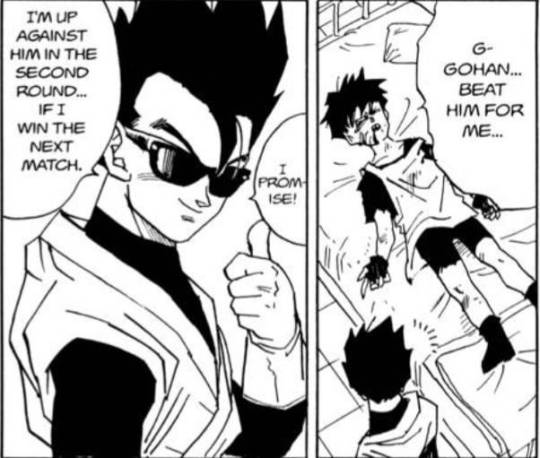
The audience is being told that Videl can no longer depend on her own skills and needs to rely on the big (Saiyan) boys to protect her. Videl does not get a chance to swear vengeance against Spopovich or to use that moment to motivate herself to become better. Instead, what we have is Gohan stepping in and swearing vengeance on Videl's behalf and Videl asking Gohan to get back at Spopovich for her. Nothing is wrong with a male loved one protecting you and I find it sweet of Gohan. But this just further robs Videl of whatever agency she had left as a promising female fighter.
Gohan is unfortunately the worst thing to happen to Videl's character as a fighter.
#videl satan#videl is crushed#videl vs spopovich#videl deserved better#videl's potential was flushed down the drain after the spopovich fight#son gohan#HanVi#hanvi critical#dbz females deserved better#spopovich stomped the tomboy out of videl#dbz#dragon ball z#dbz thoughts#gohan and videl are probably one of the cutest couples in dbz but i wish videl could have been explored more as her own character#imagine if krillin or tien stepped in during goku's fight with piccolo jr in db and ruined goku's chance to finally be tournament champion?#why doesn't videl deserve the same respect?#oh it's because she's a girl so she needs a boy to save her :(#buu saga
4 notes
·
View notes
Text
now we talk about how girls aren't seen as autistic, because of the Boy Genius optic, but trust me, it's just as big an issue that girls aren't seen as smart and or that smart girls got unfairly clinicalized in ways that smart boys didn't. Lots of things that would get girls seen as defiant, were/are things that boys were simply allowed to be. Girls in lots of culture contexts simply weren't even allowed to be smart.
Finally, "not just boy geniuses are autistic, really mediocre girls are, too!" isn't the brilliant take you think it is
You have to question the gendered optic of "genius" to begin with.
Either there are mediocre boys who are autistic as well, or there are girl geniuses you are missing. Masking Discourse often assumes that autistic girls basically go bimbification or Stepford to pass, but that boys never ever do the same thing to fit in with other males.
Finally, I think some of it is that we normalized "weird smart girl" as non-threatening but demonized weird smart boys. Weird Smart Girl hobbies often just aren't even seen as autistic. Sometimes you don't get diagnosed because people around you don't see you as a problem that needs to be contained. I legitimately just got away with a ton more than a boy would've
#It doesn't help that female intelligence in media is treated like intuition or mystical ability or being an X-Man#I am making a very deliberate point to write my STEM autist protagonist the way they'd be written as a man#And letting her be heavily visibly GNC#Basically I am writing the character I would have found aspirational at 14 as a secretly queer tomboy beginning to deal with masking#She could have saved me
24 notes
·
View notes
Text
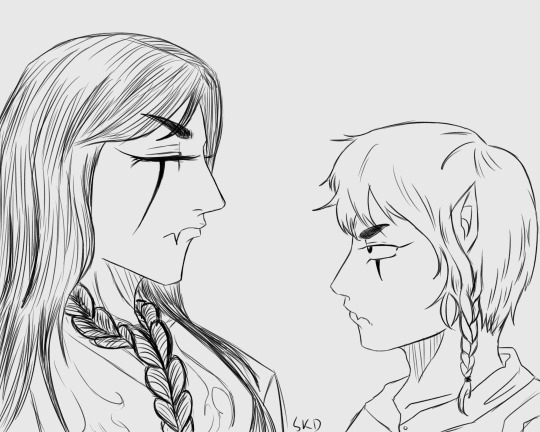
‘I wonder if she’d be happy with where I am now’
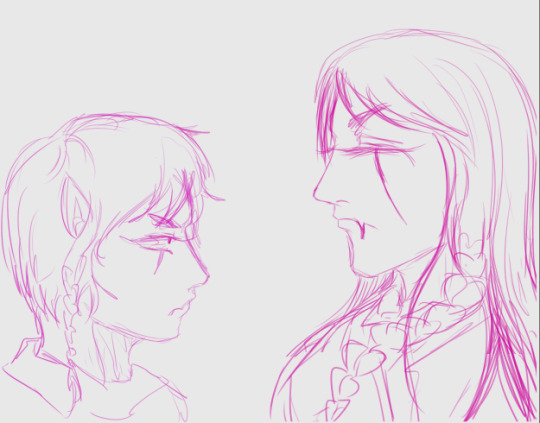
#my ocs#mk oc#my art#me revealing ling's sister's younger self real#but i like how they came out#i wonder if she's happy with who she's become in spite of becoming someone undefeated#because she's grown up a lot taking care of Ling#she's always been incredibly strong but she's had her fair share of people she couldn't save or protect#her younger self sees how pretty she dresses herself and she doesn't quite understand since she was a tomboy who was busy armwrestling#everyone she knew#but i think they'd get along once qian shows her giant arm muscles that are hidden under those clothes#and when she brings out her essence and shows how strong they've become together and how they have a great relationship#but yeah i just really missed drawing her and my ocs in general to be honest ;-;#but yeah their species' hair goes from pale to dark as they age hehe#i just realized its reverse aging in a sense
7 notes
·
View notes
Text
listen the running up that hill moment at the end of dear billy is obviously very beautiful and powerful but also every time i rewatch it i get distracted by how funny it is that max’s positive memories are almost all of lucas, el, and dustin because she and mike have fought in literally every interaction they’ve ever had and she and will have only spoken to each other twice onscreen
#much like chandler and phoebe max and will are supposedly friends but never really have storylines together#meanwhile max has exactly one positive memory of mike and even that was from a scene where they were fighting#i know the whole coma thing will make this challenging but PLEASE could i get some max and will friendship in s5#they've both survived being possessed by vecna! they've both been victims of the upside down who the plot revolves around saving!#they both had abusive older male family members who they wanted a better relationship with but who is no longer in the picture!#they both in some way transgress/fail to fulfill the gender expectations placed on them by 1980s society!#(max by being a tomboy and will by being gay and also sensitive/emotional/delicate)#(also i'm a bi max truther but i don't think she figures that out until college)#will actually understands what max is going through better than anyone else and they should bond over that#if nothing else i'd love to see will give max some advice on how to trust your own mind again after being possessed#stranger things#st spoilers
15 notes
·
View notes
Text
Published: Oct 24, 2023
I was around 10 the first time my mother asked if I thought I was a boy.
There was a period from the 1970s-1990s where the concept “tomboys”, although perhaps originally intended as a derogatory term, provided a space for pre-pubescent girls to act, play and dress in ways that were not stereotypically coded feminine; in other words, some of the freedoms boys were granted. My mother clearly felt that raising a daughter and a son should be drastically different experiences. This was not largely the case, as I wanted to be just like my older brother.
Growing up, my parents had strict ideas around the roles of men and women in society. Men were “head of the household” and had the final say on decisions, as well as being the primary disciplinarian; women’s primary roles were as caregivers. My parents were religious, raising me in a religion where homosexuality was taught to be immoral and unnatural.
In some ways, I fulfilled many stereotypes of feminine attributes: being gentle, soft-spoken, and nurturing towards others. I enjoyed playing with dolls and soft toys; however I also had a keen interest in cars and transformers. As a painfully shy child, I preferred the company of fictional characters in books more than people; this level of social awkwardness alone cast me as “odd”.
However, what had been convenient and financially fiscal - hand-me-down clothing from my brother - had become my clothing of choice. I only wanted to wear “boys’ clothing”, much of which came in my favourite colour (blue) versus the bright warm colours of “girls’ clothing”. Having worn both, I had realised that boys’ clothing was looser fitting, had more flexibility of motion, and was more comfortable. I disliked glitter, sequins, lace and frills, none of which was found on boys’ clothing. As a very shy child who refused to wear the clothing supposedly designated for my sex, this often invoked commentary and disapproval from adults around my appearance and my body. Boys’ clothing, with its longer sleeves and longer torso, covered up more of my body; a body I was painfully aware that others were observing and judging, sometimes openly.
My mother had told me how excited she was when she learned she was going to have a daughter to “do girly things with”, fantasising of frilly dresses and ballet rehearsals. Instead, she had me. Although my parents allowed me to play with the same toys as my brother, pursue the same sport as my brother, and (eventually) choose my own clothing, my mother’s question showed that she still didn’t understand: “Do you think you’re a boy?” My mother, likely feeling that she had been short-changed around the perks promised with raising a girl, could not understand how her daughter, who declined most things coded feminine, could indeed be a girl who was comfortable with this fact. 10 year old me didn’t understand just how loaded the question was, but did find it strange and hurtful, replying, “No, I’m a girl” in a confused tone.
Thankfully, as the concept of “tomboy” was popular while I was growing up, this meant there was a known word that described the type of girl I was; one that allowed me to know that, no matter what I liked or did, I was still a girl.
There was another word that described the type of girl I was. I was around 8 the first time I heard the word “gay”. A boy slightly older than me had spit the word out, yelling at another child “I’m not gay!” This caught my interest. Although the word itself was unknown, the meaning had been clear with the derision and emphasis the boy had placed on the word, his face consorting in disgust as the word left his mouth. It must be something really bad was the clear impression.
I had the opportunity to quench my curiosity that same week. In line with other tasks that could be deemed naughty, looking up bad words in the dictionary required careful timing to when family members were distracted elsewhere. I timed my moment carefully and looked up “gay”, which naturally led to my learning the term “homosexual” - oh. Reading the definition, it was almost like a warm recognition spread across my chest, embracing me. I hadn’t known that homosexuals existed, but I was pretty sure I was one. After this, I would sometimes sneak out the dictionary just to read these words again; although just ink on paper, it was proof that other people like me existed.
I would later use this word - gay - against myself, turning it from something comforting and wonderful, to the same kind of contempt that shrouded the word whenever I heard others use it in real life. Laying in bed at age 11, I had prayed to not be gay, promising myself that I would never tell anyone about these feelings and grow up to marry a man. Although it had been fine when my feelings towards certain girls had just been an intense desire to be their friend and be near them, these feelings had become much harder to ignore now they had turned into more concrete thoughts, such as how beautiful a certain girl was, how shiny and luscious was her hair, and daydreaming around our hands accidentally touching. It was much harder to deny the very clear signs of a crush, particularly when all my female friends had crushes on boys. In order to fit in, I focused my energies on talking about how “cute” one of the boys in the class was - I had never interacted with him, however he had soft features and long eyelashes, and seemed gentle in nature. I would then go home and dream about my female friend and her lovely, long dark hair.
Coming into puberty, I had also started learning more about my religion’s views on homosexuality, specifically that it was immoral and unacceptable. This led to a lot of emotional hurt and confusion for me. At this point, homosexuals may as well have been mythical creatures, discussed by others, but never appearing as an identifiable person in real life.
* * *
Several years older, 15 year old me was struggling. Since puberty, I had been trying to push away any inkling of desire I had towards other girls.; it hadn’t worked. Now with slightly more understanding around the world and how I fitted into it, I had started the process of accepting that these feelings weren’t going anywhere and were, perhaps, just a normal part of me. I had also started considering that if I had been created with intent, as my religion taught, then no mistakes were possible, and my attraction towards girls, which had always been there in some form, was as natural and as similar as anyone else’s. Although it had improved, my social awkwardness still made me frequently feel like an outsider, with my secret and furtive crushes on other girls further making me feel different in a way I couldn’t discuss with anyone. This feeling would decrease when I eventually met other lesbians, however this wouldn’t happen for several years.
I had started to shop in the women’s department, and outgrown my obsession with cars, instead falling into an obsession with music; something familiar to many teenagers. Still, I preferred comfortable clothing that would be classed as “gender neutral”: jeans, baggy t-shirts, converse shoes. I wore my mid-length hair messy, fantasising about the short hairstyles lesbian duo Tegan and Sara sported. I spent a lot of time listening to music with female musicians who played guitar, preferring artists who openly sung about and desired other women, or those who sang with ambiguity in their love songs, allowing me to place my own meaning on them. My penchant for female musicians had not escaped the notice of my friends, who gently teased me about it, although they didn’t seem to understand the cause for this fixation.
Again, now a teenager, the same question from my mother, phrased slightly differently this time: “do you feel like you’re a man?” I remember telling my friend about this at a sleepover the same night - her response was silence. She didn’t know what to say.
* * *
Several years passed. I was now an out lesbian with a rainbow flag proudly adorning the wall of my share-house bedroom. This included being out to my parents, who had taken the news reasonably well and had been supportive. Having a friendly gay male couple move into their neighbourhood in my late teenage years had significantly increased their understanding and acceptance of homosexual relationships - and had allowed me to finally meet others “like me”. I had fulfilled my fantasy of cutting off the majority of my hair, with the longest section being a fringe that flopped into my eyes. I had also gone back to shopping in the men’s wear section, though my wide hips and narrow shoulders made finding men’s clothing that fit me well difficult. I had finally had my first kiss, although not yet a girlfriend, though most of my time was spent dreaming about this.
My parents had reassured me that they loved and accepted me when I told them I was a lesbian. They had continued to reaffirm this in the following months, however despite this acceptance, my mother showed that she still doesn’t understand, asking me the same question again, some months after I came out: “do you want to be a man?” It was as if every five years, the thought occurred to her again that I must have gender identity disorder because of the way I looked and acted.
I’m in my late 20s now. I have been an out lesbian for a decade, and have had several girlfriends, although my current relationship is by far the longest. My parents adore my girlfriend, buying her birthday presents, and always letting me know how much they approve. My mother comments on how nice my girlfriend’s dresses are and how much she likes her long hair, telling me, “you would look so nice in that”. I feel fatigued with a lifetime of trying to convince her I am genuinely comfortable like this, and tired of defending my short hair, which is my favourite part of my appearance. My girlfriend gets angry on my behalf whenever my mother makes these comments, defending me and saying she thinks I look beautiful as I am.
I am thankful that I never came across the often repeated and homophobic rhetoric that only boys like girls, and therefore lesbians are actually just straight males on the inside. My conviction of my own self, that I am a girl who likes girls, has protected me in this way, but may not have had I had been born a decade later, where it seems many young girls similar to myself are being taken to gender clinics. Or that my mother’s conviction that I am secretly a transman - which has been a reoccurring theme across my life so far - could have caused consultation with a medical professional to convince me of this very fact; something that, as a child who felt different and never seemed to fit, I am sure I would have trusted the adult expert’s views on.
Somehow - bewilderingly - now almost 30, my mother again asks me if I feel like I’m a man and if I’m actually trans. I explain as patiently as I can that no, I’m a lesbian woman and it’s hurtful to me that she seems to refuse to truly accept this, questioning whether I can be a woman because I don’t match her view of what a woman looks like.
She listens to my words and apologises, saying she thinks she understands now. I can’t help but wonder if we’ll be having this same conversation in another five years.
==
It's weird that they would prefer that their god made a "mistake" and put her in "the wrong body," than that their god doesn't make mistakes, and that she's who he wants her to be.
It's a bad sign when a far-left ideology and a conservative religious view coincide.
#LGB Alliance#lesbian#same sex attraction#trans the gay away#trans away the gay#save the tomboys#gay conversion therapy#conversion therapy#gender ideology#queer theory#genderwang#religion#born in the wrong body#in the wrong body#religion is a mental illness
108 notes
·
View notes
Text

Last part. P 3
Save the lesbians!!!
1 note
·
View note
Text
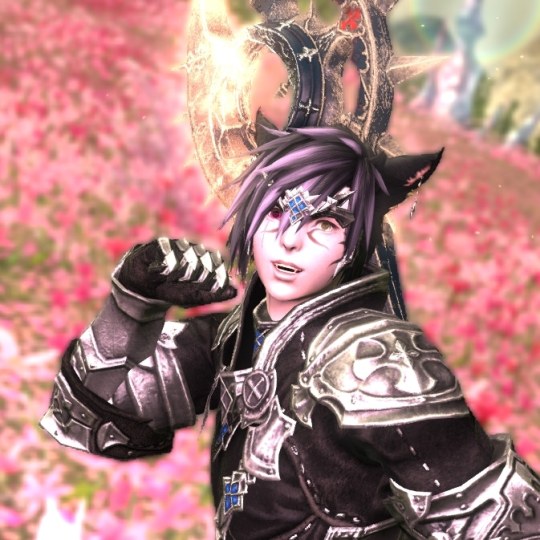
My lovely lady Lucifuge
#female wol#ffxiv#ffxiv gpose#ffxiv wol#gposers#lucifuge belladonna#miquo'te#adult human female#save the tomboys
1 note
·
View note
